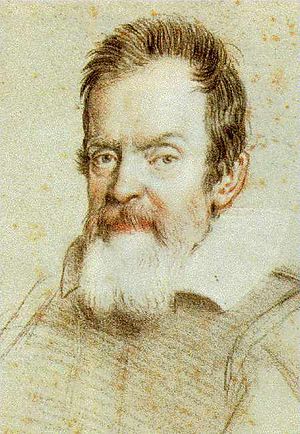Reconciling Science and Religion
There was a time in Western culture when science and religion seemed inseparable. Their mystical union had flourished for more than a thousand years, producing “infallible” explanations for everything from the flight of angels to the motion of planets.
Then, about 500 years ago, cracks started to appear in the immutable firmament. Nicolaus Copernicus, Johannes Kepler, Galileo Galilei, and others began to suspect that something was terribly wrong with the worldview espoused by the Church. Holy scriptures and instruments were consulted. Controversial books were written. Accusations were hurled. Finally, when Galileo was tried and convicted in 1633 of heresy for advocating that the Earth circled the Sun, the divorce between science and religion became all but finalized.
Today, after four centuries of mind-boggling scientific discovery and technological innovation, religion is back in vogue. We’ve already had a born-again Christian in the White House; Evangelicals continue to organize bold new attacks on the study of evolution in our schools; and some respected scientists, such as Nobelist Charles Townes, actually believe that science and religion will eventually reconcile their long estrangement.
What’s going on? Is science in crisis? Will science and religion really reconcile?
The short explanation for the renewed spiritual interest in science is that science itself has become an unwitting victim of its own spectacular success.
One outcome of this success is that many scientific discoveries, particularly those of the last 100 years, are deeply unsettling to the human psyche. Albert Einstein, for example, demolished our classical perceptions of time and space with his theories of relativity; and Werner Heisenberg, with his principle of indeterminacy, rattled our fundamental sense of certainty and causality.
Another characteristic is that modern scientific theories, from quantum mechanics to black holes, are beyond direct human experience. As a result, their arcane musings make them indistinguishable for most people from religious beliefs that must be accepted on faith.
Also, scientific findings and the technologies they spawn have created complex and unprecedented moral dilemmas for society. This is especially true for the life sciences, where stem-cell research, cloning, and genetic engineering have only just begun to roil the ethical waters.
But these are the consequences of scientific achievement, not crisis. The real crisis is the same as it was five centuries ago: those annoying cracks in the firmament of our conventional beliefs brought on by the discoveries of science.
The issue, then, is not whether science and religion can reconcile. The issue is whether we can come to grips with what science reveals to us.
If science offers us any comfort, it is in the enlightenment that comes from its proven process of discovery. This is not the irrefutable kind of “enlightenment” that religion usually claims to provide. Scientific enlightenment is an understanding deeply rooted in Cartesian doubt. As Dawkins’ theory of progress wryly explains, progress in science consists not of replacing wrong theories with right ones; it consists of replacing wrong theories with theories that are more subtly wrong.
This process becomes more difficult over time, because one must first show, through careful reasoning and experiment, how an established theory goes awry. Then one must create a better predictive theory or paradigm that can hopefully be tested experimentally.
That is why proponents of “Creationism” and “Intelligent Design” do more harm than good when they demand equal consideration of their faith-based ideologies with the life sciences taught in our schools. Such notions are not viable scientific theories. Moreover, to label a legitimate scientific theory as “just a theory” deliberately undervalues its significance, as if any idea will suffice if enough people believe it.
Scientific theories do not rise or fall by democratic vote, nor are they proclaimed by papal decree. They are not political propositions subject to some equal-opportunity assessment. They are scrupulously tested, elegantly constructed concepts that represent our best understanding of physical reality.
Hard science is not a philosophy or a religion. It makes no moral judgments about the universe or human affairs. It offers no teleological explanations of reality like “Intelligent Design,” and it does not prove or disprove the existence of God.
Science is simply a process of discovery that takes virtually nothing on faith, yet leaves us with a demonstrably better understanding of reality. It admits to our ignorance and acknowledges the fallibility of our senses, yet it still endows us with a profound awareness of our universe. And that, for some of us, makes all the difference.
T. V. Higgins
